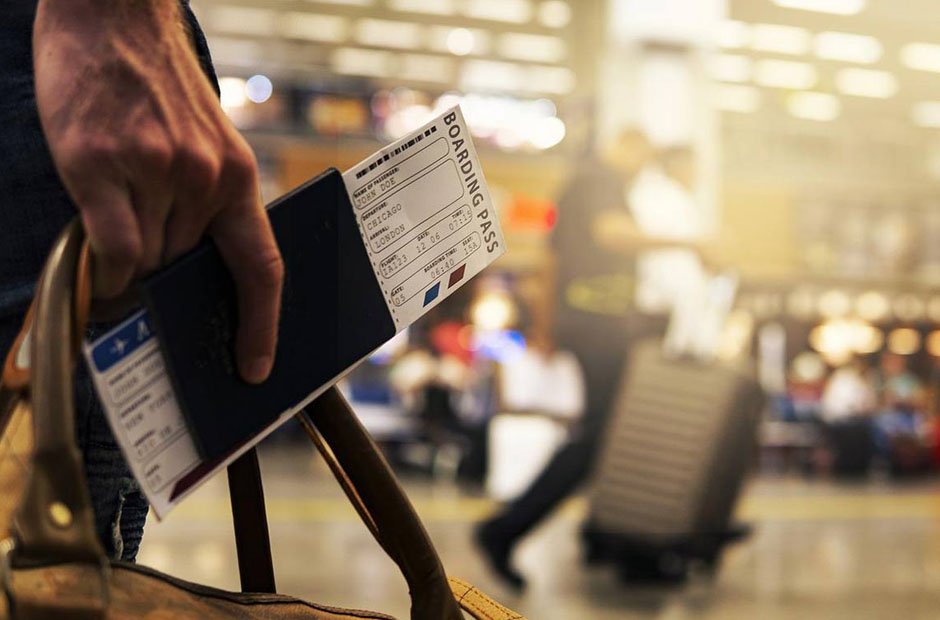Moving to another country involves way more paperwork than most people expect. It’s not just about packing boxes and booking flights – there’s a whole administrative mountain to climb before belongings can legally cross borders and lives can officially start somewhere new. Understanding what’s involved helps avoid the delays, fees, and headaches that come from showing up unprepared.
Visa Documentation Comes First
Everything else depends on having the legal right to actually live in the destination country. Visa applications typically require birth certificates, marriage certificates, police clearance checks, medical exams, proof of employment or financial stability, educational credentials, and various other documents depending on the visa category.
The catch is that many of these documents need to be official copies, not just regular photocopies. Some countries require notarized versions. Others want apostilles – a special certification that makes documents valid internationally. Getting all of this together takes weeks or months, not days.
And here’s the thing that catches people: some documents expire. A police clearance check might only be valid for six months. Medical exams have validity periods. So timing matters – getting documents too early means they might expire before the visa gets approved, but waiting too long delays the entire process.
Customs Declarations for Personal Belongings
When shipping household goods internationally, customs agencies want detailed inventories of what’s being sent. Not just “kitchen items” or “bedroom furniture” – they want specific descriptions, quantities, and values for everything. This includes that box of random cables in the garage and the contents of the junk drawer.
Creating these inventories is tedious and time-consuming. Every item needs to be listed, described well enough that customs officers understand what it is, and assigned a value. Undervaluing items to reduce potential duties can backfire if something gets lost or damaged and insurance claims are based on the declared values.
Some items require special documentation or face restrictions. Wooden furniture might need fumigation certificates. Electronics may need proof they meet safety standards. Food, plants, and animal products often can’t be shipped at all. Checking the destination country’s prohibited and restricted items list before packing saves discovering problems later.
Working with companies like Seven Seas Worldwide that understand customs requirements for different countries helps navigate these rules without learning them all the hard way through rejected shipments.
Proof of Residency and Address Documentation
Many administrative tasks in the new country require proof of address, but getting that proof when just arriving creates a chicken-and-egg problem. Opening a bank account needs proof of address. Getting a phone contract needs proof of address. Registering with local authorities needs proof of address. But getting proof of address requires having somewhere to live first.
Initial rental agreements or short-term accommodation bookings become critical documents. Some countries accept hotel confirmations or Airbnb bookings as temporary proof of address. Others require formal lease agreements. Having these documents ready in both digital and physical copies makes the first weeks much easier.
Utility bills in the new resident’s name are often needed as ongoing proof of address, but those don’t exist yet. This is where knowing alternative acceptable documents helps – bank statements, government correspondence, or rental agreements often work when utility bills aren’t available yet.
Financial Documentation Gets Complicated
Banks want extensive documentation before opening accounts for non-residents or new arrivals. Expect to provide passport, proof of address, reference letters from current banks, proof of employment or income, tax identification numbers, and sometimes proof of the source of funds being deposited.
Transferring money internationally also requires paperwork. Large transfers trigger anti-money-laundering checks that need documentation about where the money came from and why it’s being moved. Having records of asset sales, employment income, or other legitimate sources ready speeds this process.
Tax documentation creates another layer. Some countries require proof that taxes have been settled in the previous country. Others need tax residency certificates. Getting tax advice before moving helps understand what documentation will be needed and ensures nothing gets missed that could cause problems later.
Vehicle and Driver’s License Issues
For those shipping vehicles, the paperwork multiplies. Import permits, vehicle registration documents, proof of ownership, compliance certificates showing the vehicle meets local standards, and sometimes shipping insurance documents are all required. Some countries add import duties or taxes on vehicles that need to be paid before customs releases them.
Driver’s licenses from some countries can be exchanged for local licenses, while others require taking new driving tests. Either way, there’s paperwork – applications, proof of driving history, sometimes notarized translations of foreign licenses, passport photos, and various fees. Some places give limited time to complete this process after arrival before the foreign license becomes invalid.
Medical and Insurance Records
Having medical records translated and available helps with healthcare continuity in the new country. Vaccination records are particularly important, especially for families with children who need proof of immunizations for school enrollment.
Insurance becomes a documentation challenge too. International health insurance requires applications with medical history. Some visa categories require proof of health insurance before approval. Understanding what coverage is needed and getting the paperwork in order before arrival prevents gaps in coverage during the transition.
Educational Documentation for Families
Families with school-age children need academic records, transcripts, immunization records, and sometimes translated and certified copies of all these documents. School enrollment often requires proof of address, passport copies, visa documentation, and previous school reports.
Higher education credentials may need to be evaluated by credential assessment services that verify foreign degrees and determine their equivalence in the new country. This process takes time and requires official transcripts, degree certificates, and detailed course descriptions.
The Reality of Paperwork Overload
The amount of documentation required for international moves feels overwhelming because it is overwhelming. There’s no way around it – moving countries involves more administrative work than any other life change. The process can take months from start to finish, and that’s if everything goes smoothly without rejections or requests for additional documents.
Starting early helps. Getting documents organized and certified while still in the home country is easier than trying to request things from abroad later. Making multiple copies of everything important – both physical and digital – prevents disasters when something gets lost. And accepting that some paperwork will need to be redone or supplemented along the way reduces the frustration when it happens.
The bureaucracy is the price of admission for international living. It’s tedious and sometimes seems pointless, but it’s also universal. Everyone who moves countries deals with this administrative maze. Getting through it is simply part of the process, and the clarity of knowing what’s needed makes it manageable rather than impossible.



